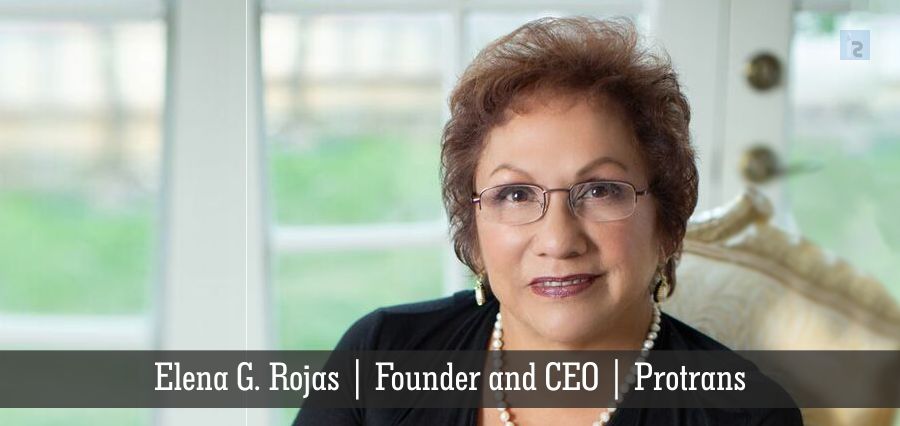International communications have become a vital part of the business world. This global reach is achieved through effective comprehension of various languages. Language is one of the most complex yet most important medium to maintain clear communication and data transmission. To give simplicity to language and its understanding, Professional Translators & Transcribers, Inc., (dba Protrans) has come up with its cutting-edge solution.
Protrans is a private corporation which provides federal, state and local law enforcement with Analytic Linguists. These are elite language experts who work alongside the law to investigate crimes. Protrans occupies a specialized niche that other Language for Specific Purposes (LSPs) entities do not provide. Protrans is dedicated almost exclusively to providing expert language services in support of law enforcement. It screens, trains, assesses and certifies its Analytic Linguists through Translation Skills Training’s™ (TST’s) program, administered in partnership with Montclair State University (MSU).
In addition, Protrans sponsors applicants in the process of obtaining security clearance once they are accepted into TST’s training program. Since Protrans is a sole proprietorship, it has no bureaucracy, making it able to adapt to change of all kinds and respond quickly to satisfy the needs of clients.
Aboard a Global Voyage
The CEO of Protrans, Elena G. Rojas, founded Professional Translators and Transcribers, Inc. (dba Protrans), in 1972. Since its inception, she has been the sole and continuous owner, expanding its operations and creating Translation Skills Training™ (TST) in 2014. Along the way, in addition to providing expert language services, she has also won prestigious awards and recognitions, inspired her staff and transformed lives all along the way. A dedicated CEO who never considered herself as the boss, counted herself as more of an employee, to maintain discipline at work.
She began by providing her services to the California Department of Corrections, then to the Los Angeles Police Department, and eventually to the Drug Enforcement Administration (DEA). While at the DEA, the need for elite language experts like her grew exponentially, and Ms. Rojas was asked by them to train more language experts to do the even more specialized levels of work she was doing for the DEA.
Exemplifying Language Solutions
Protrans has grown because Ms. Rojas committed herself to develop the company’s operations alongside maintaining harmony with the changes in the general work environments in the linguistics industry. Being au fait with relevant emerging technologies alone is not enough. Protrans always aims to have a personal touch and never let the computers do the work.
This personal touch extends to Ms. Rojas’ spinoff company, Translation Skills Training™ (TST) which is exclusively dedicated to screening, training, assessing and certifying Professional Analytic Linguists.
Protrans provides Analytic Linguists to a variety of federal, state and local agencies and private entities, offering language services in various languages, to interpret or translate from one language into another, to monitor oral communication intercepts in foreign languages, summarizing them in English, as well as transcribing verbatim oral communication intercepts in the source language for subsequent translation into English.
Exertion to Stand Tall
The most prominent changes in the language service industry have resulted from technology. Technological innovations have and will continue to impact all types of LSPs in many ways. Word processing and email have enabled LSPs and freelancers to work remotely, freeing everyone from even the most severe geographical restrictions.
The internet and access to vast amounts of lexical data and information have empowered the LSPs and language experts to harness these tools and work smarter. Some LSPs and freelancers have advanced in Computer-Assisted-Translation (or Machine-Assisted Translation) which is known as CAT/MAT software that has increased output and earnings.
Similar to the case with literary works, the idiosyncratic nature of the spoken language of various groups and types, especially the colloquial, cannot be translated by automated means. This reality highlights the fact that skilled language experts need to be trained further in order to work as Analytic Linguists.
The challenges involved knowing what was needed from a pedagogical perspective in order to develop training that specifically addressed the skills sets needed by Analytic Linguists. This training requires technologies for delivering instruction and assessment efficiently, while maintaining high standards. This twin challenge offered opportunities and Ms. Rojas sought experts of various kinds to develop an in-house curriculum. The demand continued to grow until it was too great to handle under one roof and that became the stimulus for Ms. Rojas’s creation of Translation Skills Training™ (TST).
Envisioning Glory
Protrans and TST are ceaselessly delivering their respective cutting-edge services, and in so, defining the future of their industries, and are committed to remaining so. Whether in terms of developing and continually improving its intuitive, effective website interactions with clients in need of language experts on the one hand, or, on the other, delivering online learning, Protrans and TST are already ahead of the curve due to the specialized nature of each of their activities.
Source :-The 10 Most Recommended Language Service Providers 2018


